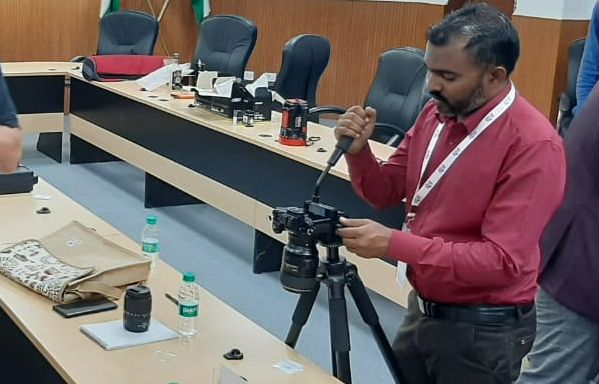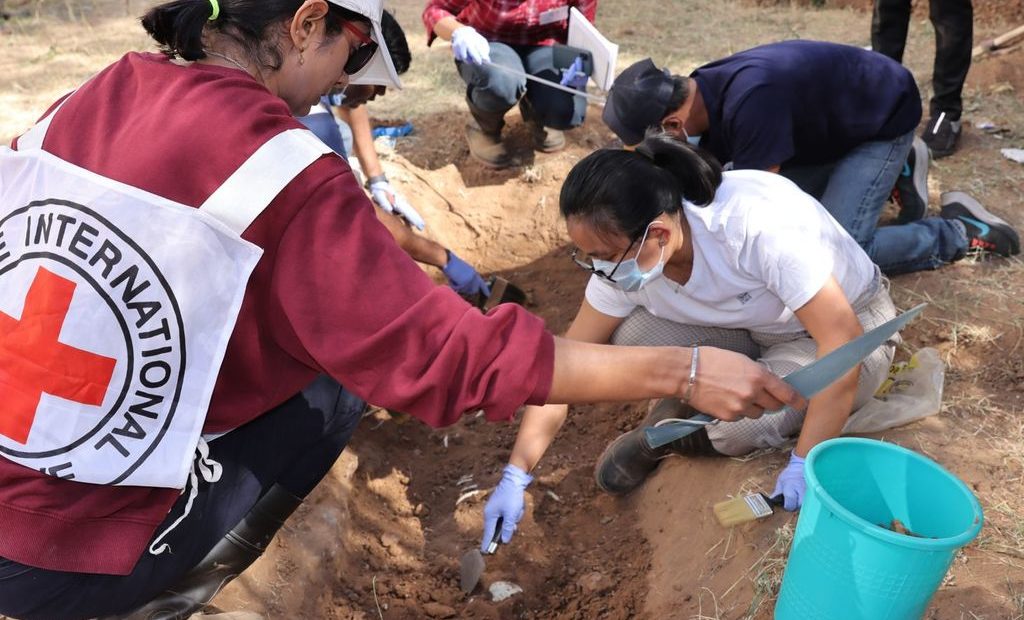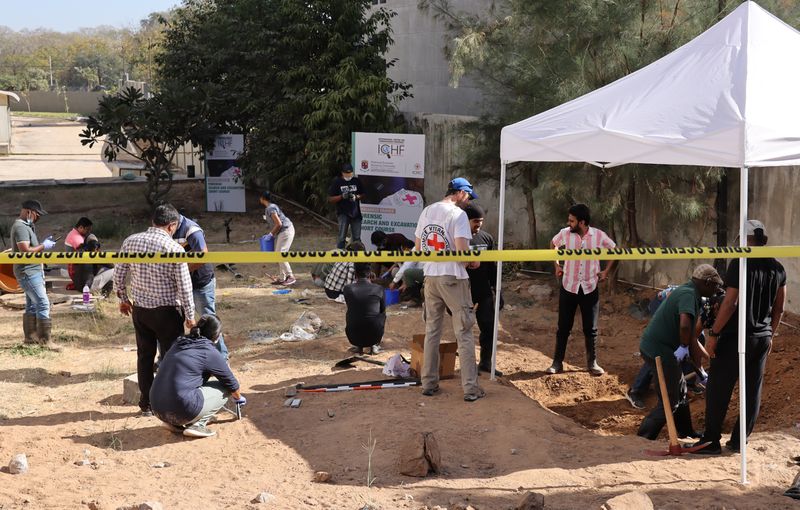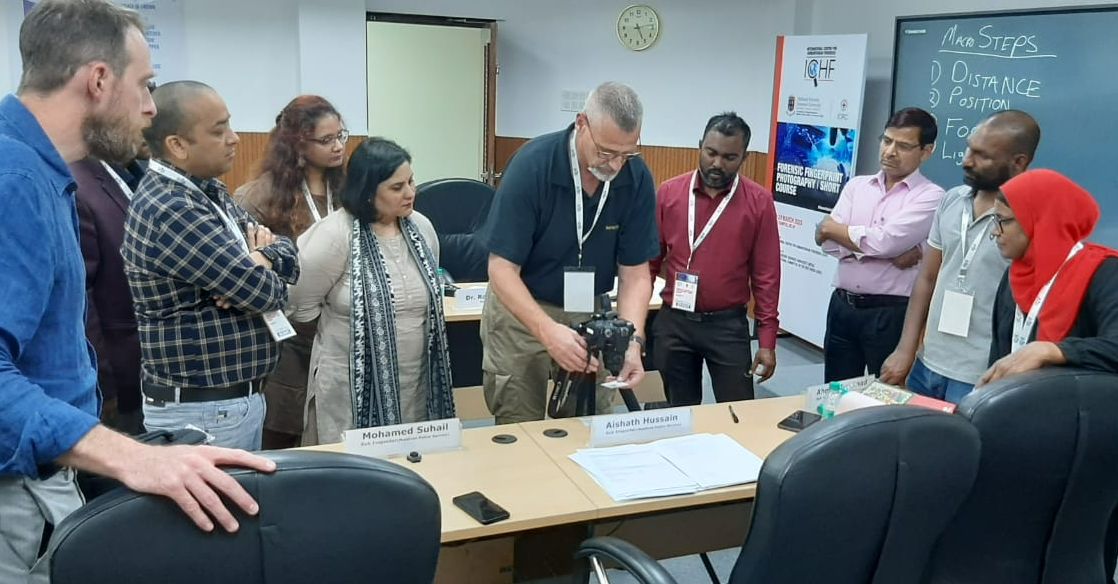Philosopher, mathematician, and social activist Bertrand Russell said: “War does not determine who is right, only who is left”. Russell was referring to survivors of war; in any disaster scenario, that is where our focus should be. Caring for survivors, however, includes investigating those whose fate is still unclear – the Missing – so their family members can know whether they survived. The ICRC’s work with families of missing persons worldwide has taught us that even in the sad case that a family member has died, finding and identifying the deceased’s body is significant to them.
Today, in some ongoing armed conflicts around the world, the dead are buried almost immediately. Only when it is safe are bodies exhumed and then examined to try and identify them. We also see this rush to bury in the tragic death of undocumented migrants who die in shipwrecks or along precarious land routes.
An inexpensive and extremely reliable means of identifying the dead is fingerprint comparison, which has been in use for about 130 years; the first fingerprint bureau in the world was established in Kolkata in 1897. One registry in India currently has more than 12 million peoples’ fingerprints on record and the increasing use of biometrics, including the Aadhaar system, is adding to the records that might be used to identify the anonymous dead. Perhaps some want to believe the adage “out of sight, out of mind”, but the families of those who are missing and dead cannot forget.
 In all cases of identification, there are two elements: information from an anonymous body, which must be matched with information about a person who once lived. This is why the International Centre for Humanitarian Forensics decided to offer our first two training courses on the search and excavation of bodies from unmarked burials and forensic fingerprint photography.
In all cases of identification, there are two elements: information from an anonymous body, which must be matched with information about a person who once lived. This is why the International Centre for Humanitarian Forensics decided to offer our first two training courses on the search and excavation of bodies from unmarked burials and forensic fingerprint photography.
The ICHF is a partnership between the International Committee of the Red Cross and the National Forensic Sciences University. Through the Centre, we teach, train, conduct research, and provide consultancy on humanitarian applications of forensic science. Humanitarian forensic science is rooted in the Geneva Conventions, which oblige the authorities in conflicts and disaster situations to prevent disappearances and make efforts to identify the dead, inform families, and return their personal possessions. In short: to show respect for the dead and their families.
The first course took place at the National Forensic Sciences University (NFSU) Gandhinagar Campus in February 2023. Twenty pathologists, police, odontologists and NFSU students – including past and present ICHF students – from India, Bhutan, Maldives, and Tanzania learned about how theory and methods of archaeology is used to find and investigate unmarked burial sites. During two and a half days, different experts, including all three members of the ICRC forensic team, ICHF Faculty, and IIT Professor Sharada Visweswara Channarayapatna lectured and led practical activities related to subjects including archaeological theory and methods, taphonomy (how things decompose), human dentition, and exhumations. The next two and half days were spent prospecting for possible burial locations, conducting controlled excavation and, when burials (of plastic teaching skeletons, also associated objects) were located, their careful exhumation. Participant feedback on the course was extremely positive, emphasizing that it was the first of its kind in India and the most common complaint was that the course was too short! The ICRC Communications team created a video summary of the course here.
The second short course organized by the ICHF was held at NFSU Delhi Campus and was directed by Mr Thomas Kimbriel, a forensic photographer. Over five days, NFSU graduate students and faculty, members of the Delhi Police and Maldives Police Service, and a forensic pathologist were taught about forensic photography with a focus on fingerprint macro photography. The main message of the course is this: fingerprints are the most common, reliable form of human identification and if we record these well, we will increase the number of bodies that are successfully identified by the authorities. Although bringing news to families of the death of a loved one is difficult and unpleasant, it is an important obligation both in peacetime and during armed conflict. Participants were so enthusiastic about the course and Mr Kimbriel that they are already planning follow-up training with larger groups.
These two short courses offered by the International Centre of Humanitarian Forensics – Forensic Search and Excavation of Unmarked Burials, and Forensic Fingerprint Photography – mark an important extension in the activities and services offered by the Centre. The Centre represents a bridge between academia and practice; the partnership that created the Centre, between National Forensic Sciences University and the International Committee of the Red Cross, is the first of its kind in the world. Through the Centre, we teach, promote, and use forensic science to address humanitarian emergencies in India and worldwide.
Watch video:





